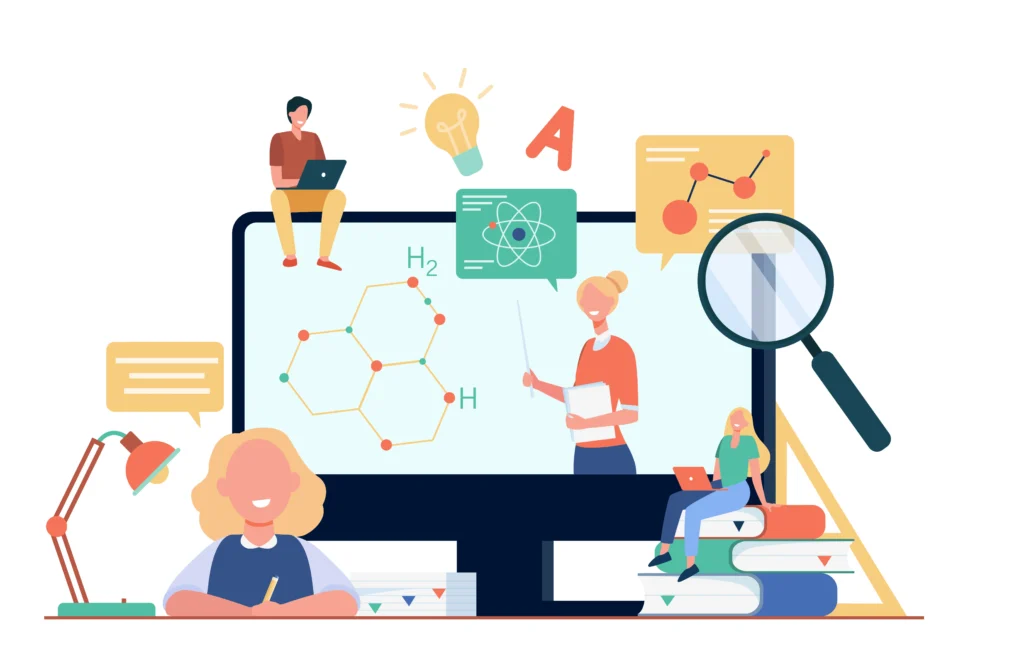Introduction to the Evolving Educational Landscape
The world is rapidly changing, and with it, the landscape of education. As we approach 2025, students worldwide must be prepared for a transformative shift in how they learn. Traditional classrooms are evolving, and new technologies are reshaping educational paradigms. This article will delve into the key global education trends in 2025, providing students with essential insights to navigate the future of learning. By understanding these trends, students can better prepare themselves for academic and professional success in an increasingly digital and interconnected world.

Key Points Overview: The Pillars of Education in 2025
Several critical trends are set to define education in 2025. Among them are the pervasive integration of AI, the expansion of online learning, the rise of personalized educational experiences, and the emphasis on future skills. These trends are not isolated phenomena but interconnected elements that will collectively shape the global education system. Students need to grasp these developments to remain competitive and adaptable in a world driven by innovation and rapid technological advancements.
Detailed Discussion: Navigating the Future of Learning
The Impact of AI on Education in 2025
Artificial intelligence (AI) is poised to revolutionize education in numerous ways. From personalized learning platforms to intelligent tutoring systems, AI is enhancing the efficiency and effectiveness of educational processes. AI-powered tools can analyze student performance, identify learning gaps, and provide tailored recommendations, ensuring that each student receives the support they need. Furthermore, AI is automating administrative tasks, freeing up educators to focus on teaching and mentoring. In 2025, AI will become an integral part of the global education system, offering students unprecedented learning opportunities.
Online Learning: Breaking Barriers and Expanding Access
Online learning has experienced exponential growth in recent years, and this trend will continue to accelerate by 2025. The flexibility and accessibility of online platforms are making education available to a wider audience, regardless of geographical location or socioeconomic background. Top online learning platforms for students worldwide are offering diverse courses, certifications, and degrees, enabling students to pursue their educational goals from anywhere. Remote learning is no longer a temporary solution but a fundamental component of the future education system. Digital literacy is becoming a crucial skill for all students.
Personalized Learning: Tailoring Education to Individual Needs
Personalized learning is transforming the traditional one-size-fits-all approach to education. By leveraging data analytics and adaptive learning technologies, educators can create customized learning pathways that cater to each student’s unique strengths, weaknesses, and learning styles. The benefits of personalized learning in 2025 include increased student engagement, improved academic outcomes, and enhanced motivation. EdTech innovations are facilitating the implementation of personalized learning strategies, making education more effective and student-centric.
Future Skills: Preparing Students for the 21st-Century Workforce
As technology continues to advance, the skills required for success in the workforce are evolving rapidly. In 2025, students will need a diverse set of future skills, including critical thinking, problem-solving, creativity, and digital literacy. Lifelong learning will become essential as individuals must continuously adapt to new technologies and job requirements. Gamification in education is a method that is being used to increase engagement and encourage the learning of these important skills. The global education system must prioritize the development of these skills to ensure that students are prepared for the challenges and opportunities of the future.
EdTech Innovations and Digital Literacy
Education technology (EdTech) is playing a pivotal role in transforming the global education system. Innovations such as virtual reality (VR), augmented reality (AR), and gamification are creating immersive and engaging learning experiences. Digital literacy is no longer an optional skill but a fundamental requirement for all students. Students must be proficient in using digital tools and platforms to access information, collaborate with peers, and communicate effectively. In 2025, EdTech innovations will continue to drive advancements in education, making learning more accessible, interactive, and personalized.
The Global Education System: Interconnected and Collaborative
The global education system is becoming increasingly interconnected and collaborative. International partnerships, online collaborations, and cross-cultural exchange programs are fostering a global learning community. Students are gaining exposure to diverse perspectives and cultures, preparing them to thrive in a globalized world. Student success in 2025 will depend on their ability to navigate and contribute to this interconnected educational landscape. The future of education is collaborative, inclusive, and globally minded.
Conclusion: Embracing the Future of Education
The global education trends in 2025 present both challenges and opportunities for students worldwide. By embracing these trends and adapting to the evolving educational landscape, students can unlock their full potential and achieve academic and professional success. The future of education is dynamic, innovative, and student-centric. It is crucial for students to stay informed, develop essential skills, and embrace lifelong learning to thrive in this rapidly changing world. The impact of AI on education in 2025 will be profound, and students must be prepared to leverage these advancements. By understanding and adapting to these trends, students can ensure their success in the future.
FAQs
Q1: What are the key global education trends in 2025?
A1: The key trends include the integration of AI, the expansion of online learning, personalized learning, the emphasis on future skills, and the increasing role of EdTech innovations. These trends are shaping the future of education and preparing students for the 21st-century workforce.
Q2: How will education change by 2025?
A2: Education will become more personalized, flexible, and technology-driven. AI will play a significant role in customizing learning experiences, while online platforms will expand access to education worldwide. Students will need to develop future skills such as critical thinking, creativity, and digital literacy.
Q3: What is the impact of AI on education in 2025?
A3: AI will enhance personalized learning, automate administrative tasks, and provide intelligent tutoring systems. It will analyze student performance, identify learning gaps, and offer tailored recommendations, improving the efficiency and effectiveness of education.
Q4: What are the best online learning platforms for students worldwide?
A4: Platforms like Coursera, edX, Khan Academy, and Udemy offer diverse courses, certifications, and degrees. These platforms provide flexibility and accessibility, enabling students to learn from anywhere in the world.
Q5: What future skills do students need in 2025?
A5: Students need critical thinking, problem-solving, creativity, digital literacy, and adaptability. Lifelong learning is essential as they must continuously adapt to new technologies and job requirements.
Q6: How can students prepare for the future of education?
A6: Students should embrace technology, develop future skills, engage in lifelong learning, and seek personalized learning opportunities. They should also stay informed about emerging education trends and adapt to the evolving educational landscape.
Q7: What are the benefits of personalized learning in 2025?
A7: Personalized learning increases student engagement, improves academic outcomes, and enhances motivation. It caters to individual needs, strengths, and weaknesses, making education more effective and student-centric.
Q8: How is technology shaping education in 2025?
A8: Technology is transforming education through AI, online platforms, EdTech innovations, and digital literacy. It is making learning more accessible, interactive, and personalized, preparing students for the digital age.
External Link Suggestions:
- Coursera: www.coursera.org
- edX: www.edx.org
- UNESCO: www.unesco.org







